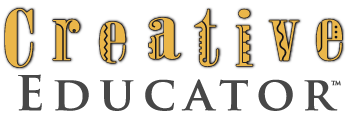Keeping a notebook is the single best way I know to survive as a writer. . . . It gives you a quiet place to catch your breath and begin to write.” – Ralph Fletcher
Recently my granddaughter who is teaching 2ndgrade shared with me the writing that her students are doing. I was a bit disturbed to learn that they are working on writing informative paragraphs -- in other words essays -- this early in the school year. My concern is that they will find writing to be very frustrating. Perhaps one way to offset this expectation would be to have students keep a writer’s notebook/journal.
The type of notebook/journal can vary from pocket notebooks to composition books, to online notebooks/journals. A writer’s notebook/journal is not expected to be graded. Definitely the teacher can establish goals – number of entries? pages? Perhaps have the student select one of the entries to share with the teacher. Also, I would also encourage the teacher to keep a notebook to share writing experiences with students.
A writer’s notebook/journal provides a place for the student to write thoughts/feelings. It is a place to for ideas, for questions, for exploring possibilities. Write about favorite books, tv shows, movies, events/memories. Maybe keep a section for favorite words/phrases. The idea is to encourage students to experiment with their ideas, their writing voices.
When my high school students were expected to write critical essays about works of literature, I encouraged them to keep writing notebooks as they were reading. Writing notes about the author’s style of writing, about the various themes that were emerging, about the point of view, about the characters, setting, etc. made drafting the essay much easier.
A favorite resource of mine was A Writer’s Notebook: Unlocking the Writer Within You by Ralph Fletcher. Check it out. I found so many great ideas that I think work for any age. I especially like this entry from Briana Carlin, a fifth grader:
A notebook is where you keep dew drops from a dew drop morning. It’s where the sun sets. It’s the wind in your face at the beach looking out over the water. A notebook is where you’re playing with your dog. It’s where you have dreams about walking on rainbows. It’s where the good feelings and the bad feelings spend the night.
